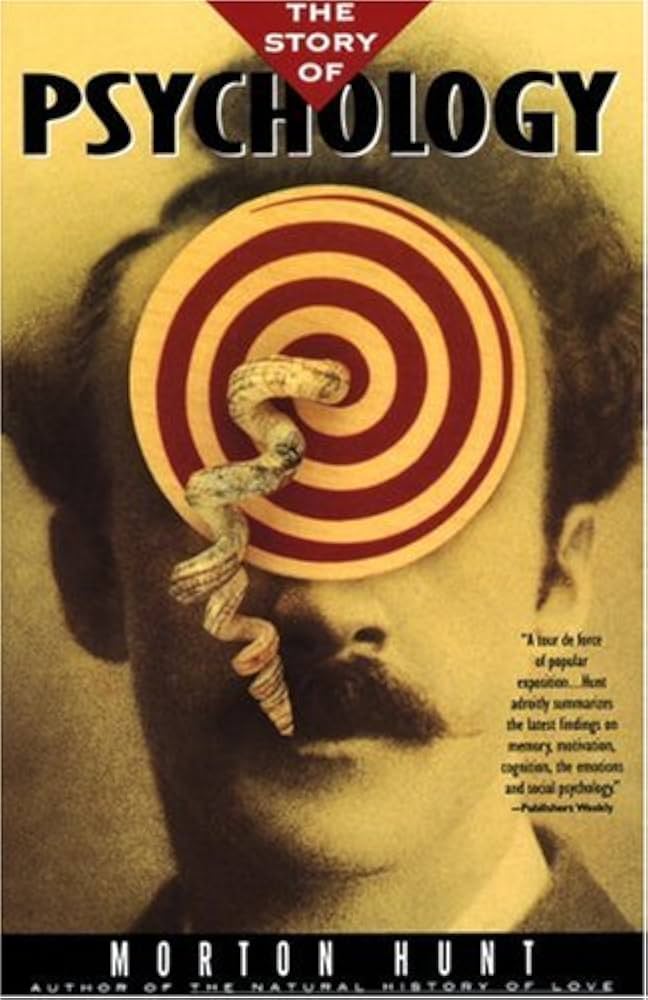

The Story of Psychology
Morton Hunt
A timeline of psychology’s history as a field, starting from the philosophical underpinnings of science developed in Ancient Greece, all the way up to the psychological practice of the late 20th century. Hunt touches on several fields of psychology including my favorites: the Behaviorists, Gestaltists, and Psychotherapists.
This book changed the course of my life. When I was in my senior year of high school, I deliberately took as many off periods as I could and the “easiest” classes available to me. I took an English course where I would finish my schoolwork within 5 minutes and find myself with nothing to do. At the back of the class was a library filled with a random collection of various books. Immediately one of the covers caught my eye: The picture of a man with a hole bored through his forehead. The word "psychology" was in the title, which was a subject I had a passing familiarity with given that I had taken a psychology course the previous year. Despite only having a mild interest in the subject matter, I was gripped by, “The Story of Psychology.” It was more than just an overview of psychology, it recounted the history of western thought on questions of “the mind” and how all of man’s greatest discoveries are built off the history laid before them. For the first time in my life I was able to contextualize history as a stream of interconnected events. I chose to apply and attend college that year – a decision which up to this point was unclear in my mind – and dedicate my educational focus to further understanding the field of psychology.
This was one of the first books I chose to take independent notes for, and previously highlighted key takeaways. A selection: Pythagoras – Drowned fleeing from Sicily after telling an assembly they had no proof of god; Hobbes – Coined “train of thought;” Weber – First psychology experiment, JND; Wundt – First psychologist; Chapter 10, the gestaltists – everything these guys were doing was great; Skinner – at the time I was taking these notes, I was interested in operant conditioning but I did not know just how much of this motherfucker I was going to study.